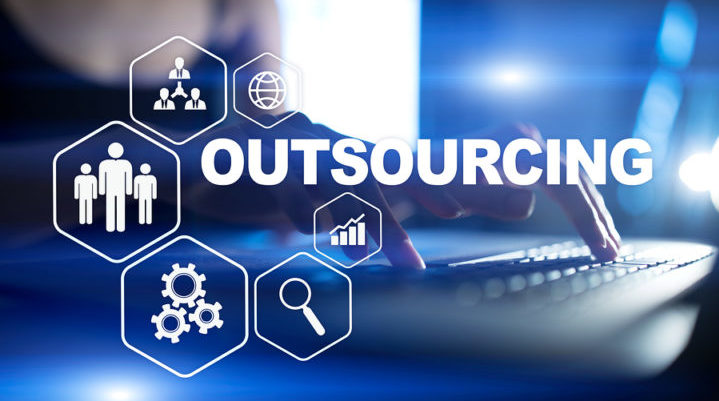December 30, 2021

Most businesses today take cyber security very earnestly and are making great efforts to protect their data and intellectual property in an online milieu.
But what about when you plan to offshore your work?
Can your outsourcing provider give you the same protection?
Data security is often one of their primary concerns for entrepreneurs who are considering outsourcing as a business option. Particularly for tasks that need dealing of sensitive information or financial transactions.
The significance of data security is a topic that many business leaders identify only when the horse leaves the stable, in simple terms it means business owners realize the value of the data only when data is lost. This is noteworthy because the data can represent one of the most valuable corporate values of any company.
Infringement of personal information provided by users can lead to a significant loss of trust and a public relations nightmare. Leakage of a company’s sales and proprietary business data can have catastrophic consequences, especially if it is misused and undermines its competitive advantage. Some companies may also collect or store data with third parties and later decide that they do not have full ownership or control of that information.

Here are just a few instances of how data breaches can have a serious influence on your organization. It’s important to note that data security must be a top priority when collecting, storing, and using data.
Third-party providers pose significant security risks to corporate data, but in practice it makes economic sense to outsource data entry tasks, data acquisition, and data storage. The most common data-related outsourcing includes:
• Data entry tasks
• Data storage on servers
• Data capture and collection
• Data processing and analysis
These outsourced data services are usually critical to success in the technology and performance index-driven business world.
However, it is often impractical to move operations indoors to eliminate security risks. In short, you need to understand where the risks of data security are and what steps you can take to protect your data.
Protecting your data when using outsourced data services needs a multifaceted method. The most important point to consider is data ownership.
Do you officially own the data?
If you dig a little deeper and read the fine prints, you may be stunned. It is not uncommon for third-party data service providers, especially those that provide data collection and storage solutions, to retain ownership of the data. In many cases, the company will incur additional charges to export the data in order to take ownership.
So how would you know if you’re ITO (IT Outsourcing) partner is protecting your data?
Here are a few checkpoints to consider.
As a business owner your expectation with your outsourcing partner should be clear as it is important to triumph in any business relationship. You need to build lucidity and strong communication from the start by discussing your expectations such as roles, schedules, project scope, and data ownership. Also, see what measures your partners are taking to outsource machine learning, OCR, or data entry to ensure data protection and security against cyber attacks.
SOCII or SOC-2 compliance refers to a review process designed to remain private and secure while data is in the hands of a third party. Built-up by the American Institute of CPAs (AICPA), this certification is usually regarded as a non-negotiable main prerequisite when choosing a service provider, whether it is a SaaS platform or a data service provider. SOCII certification is issued when the criteria of the five “Trust Service Principles” are met.
• Safety
• Accessibility
• Processing
• Reliability
• Confidentiality and Privacy
To attain SOC 2 compliance, service providers must supply their customers with reports detailing how they are addressing these critical issues that affect the security of their data. SOC 2 is not the solitary certification, so take the time to explore all the certifications that your outsourcing data service provider claims to have.
Security logs can be very informative, recording the timing and nature of attempted security breaches. These logs can offer a wealth of information about the nature of the most important threats to the security of your data. Once you possess this information, take the time to know what actions are in place to safeguard you against these security intimidations. Third-party service providers may not want to share details due to the nature of cyber security, but they should be able to provide general information about how they respond to and defend against threats aimed at endeavor to protect your data during data entry.
Powerful IT solutions and robust security are not always inextricably linked, so it is vital to treat them individually when evaluating service providers. This applies regardless of whether you are working with an offshore data collection or data entry outsourcing partner. For example, a data entry company may have state-of-the-art OCR and machine learning outsourcing solutions available, but may lack appropriate security measures to protect the data.
Technology is evolving and advancing rapidly. In short, cyber security strategies need to keep pace. Regular reviews of the latest technologies and continuous monitoring of the latest security threats may be the responsibility of the enterprise’s internal IT and data security teams. This group should also consult with third-party data service providers, such as SaaS platforms that include data collection and data collection / entry outsourcing companies, to ensure they are aware of and respond to new threats.
Apart from the above mentioned points a trustworthy outsourcing company will build its safety measures on three solid fundamentals:
A reliable outsourcing company will have an action plans like 24/7 guards, fire alarms, electronic access etc… in case of physical disasters and a well-protected office location.
Availability of appropriate hardware and software to protect data and prevent cyber attacks. This includes antivirus software, firewalls, intrusion detection and prevention systems, email filters, and data loss prevention (DLP) software. The best practices today need the use of SIEM (security incident and event management) software to keep an eye on in real time for suspicious activity on IT systems throughout the company.
A consistent privacy policy that regulates system access, internet usage, corporate email, information protection, PoPL, passwords, and NDA agreements to prevent disclosure of classified information due to negligence. Make sure that the company in question is willing to sign an NDA agreement with you, if necessary. You have the right to request that all your data related to the project remain hidden after the project ends.
At Vision Global, we take data security critically and proffer enterprise grade security with a range of alternatives available to our clientele.
For us, data protection starts well before a computer is even turned on. It includes having safe locations with surveillance cameras, deployment of security and patrols, biometrics and alarm systems. All employees are methodically screened to help authenticate employment records, validate credentials, and to check their criminal history before hiring.
We make sure that our patrons can bank on our security implementations at all times in order to keep their information protected and avoid data loss.
We make sure to perform regular software updates, encrypt sensitive data and we also have a dedicated firewall for an added layer of physical security.

